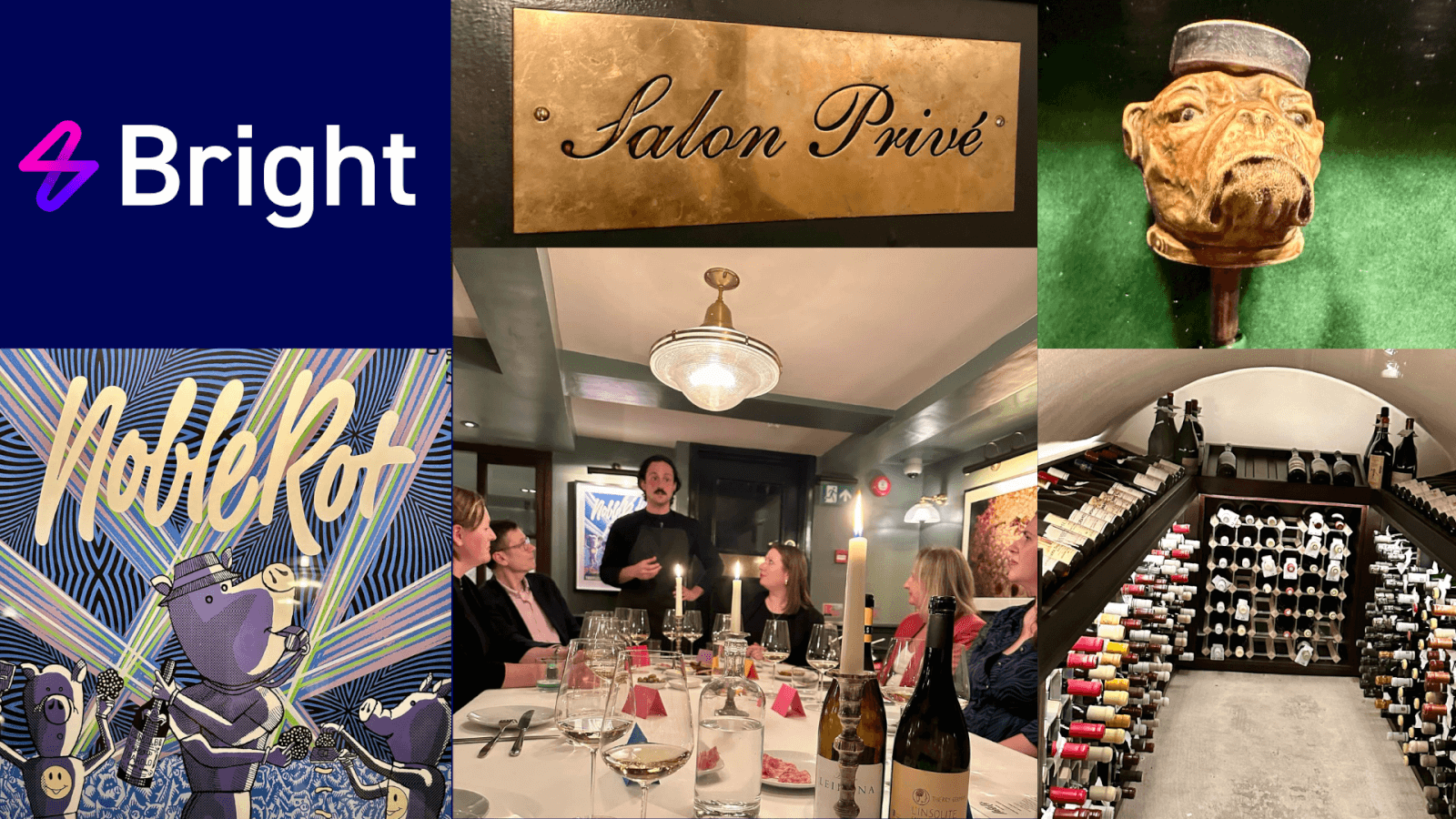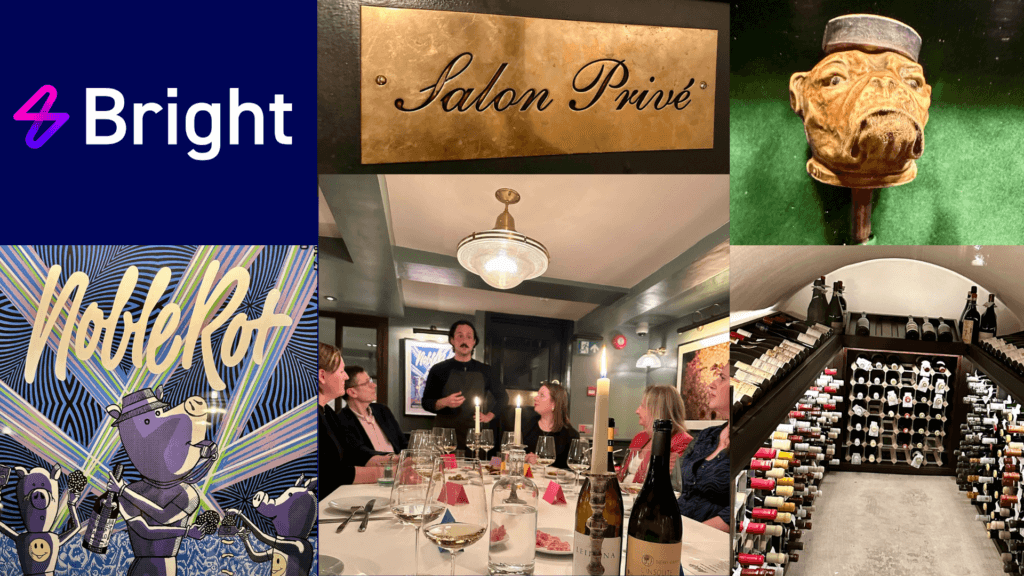The Bright B2B Marketing Leaders Dinner served as a vibrant forum for senior marketing professionals from the tech and consulting sectors to delve into discussions under Chatham House Rules. The event united leaders to share their priorities, successes, challenges, and insights, fostering a rich exchange of ideas over fine dining. The primary focus of the discussions was on the increasing necessity for agility and effectiveness within senior B2B marketing roles, highlighting key challenges and emerging trends across several critical areas.
This briefing note encapsulates the discussions, offering deeper insights into the challenges faced and the strategic approaches that have proven effective, both from the experiences shared by the leaders and the solutions provided by Bright to enhance marketing and business outcomes.
Key discussion themes and strategies for success:
Adapting to constant change and building resilience:
Leaders are grappling with an environment where market conditions, business requirements, and operational targets are perpetually evolving. Transparency about the constant nature of change is vital for fostering a resilient mindset within marketing teams and the wider business. Change fatigue, too much change and poorly communicated change is an issue in terms of realising the value of major business transformation programmes.
The conversation underscored that managing change isn’t just about responding reactively but proactively establishing agile ways of working that can adapt to change and shaping organisational culture to anticipate and embrace change as an ongoing opportunity.
Key strategies:
Establish agile marketing practices and adapt them to your environment, conduct regular strategic reviews, and cultivate a culture that views change as a growth mechanism. Agile marketing methodologies enhance adaptability and operational efficiency, but you need robust change enablement communication strategies to support and accelerate any transitions.
Aligning KPIs and communicating effectively with the C-Suite:
It’s essential for marketing KPIs to resonate with C-suite executives and align with broader business goals, ensuring marketing is seen as a strategic partner rather than a cost centre.
Leaders discussed the challenge of bridging the communication gap between marketing functions and executive leadership, emphasising the need for metrics that clearly demonstrate marketing’s contribution to the company’s targets including CAGR in high growth firms whilst demonstrating bottom line savings through efficiencies and top line growth was important for corporate environments.
Key strategies:
Develop impactful KPIs and tailor communications to the C-suite’s interests. A regular reporting cadence and clear articulation of the value of marketing efforts, from short-term demand generation to long-term brand building, are crucial. Establishing Revenue Operations (RevOps) fosters cross-functional collaboration and alignment on common goals so that everyone is working towards the same goals and outcomes.
AI Usage and Activation:
The potential of AI to enhance efficiency and engagement in marketing is significant, yet its adoption is inconsistent across industries.
Discussion highlighted that while many are optimistic about AI’s potential, there is a clear need for a framework to systematically integrate and leverage these technologies effectively. Some organisations did not allow or limited use of AI which has held back the marketing teams abilities to realise operational efficiencies and test and learn to understand where effectiveness improvements can support greater engagement across the buyer journey and within the existing client base. Other organisations were unclear where AI would add value and the risk of distraction rather than AI adding value was an issue.
Key strategies:
Effectively use existing AI tools, develop clear use cases, and implement the Bright AI Activation Framework for a structured test-and-learn approach. Foster an innovative and agile organisational culture to support technological shifts.
Internal friction and the impact on marketing effectiveness:
Interfacing agile marketing teams with non-agile departments often creates friction, with resistance from individual team members or leadership exacerbating the issue.
The leaders shared how internal friction can derail agile marketing initiatives and discussed strategies for overcoming resistance to change.
Key strategies:
Showcase agile marketing’s business value, facilitate change enablement communications, and provide leadership training to agree how agile principles will be activated within the organisation. Foster a collaborative culture to reduce collaboration drag and amplify marketing effectiveness. A book recommendation to read on this topic is The Goal by Eliyahu M Goldratt written in a fast-paced thriller style which outlines the theory of constraint.
Harnessing new generation talent:
Integrating Generation Z into the workforce presents unique challenges due to their different expectations about career progression and workplace dynamics. This generation’s digital prowess and innovative potential are immense, but their career expectations can clash with traditional progression paths.
Key strategies:
Set realistic career expectations, provide continuous feedback, create opportunities for quick wins, cultivate a learning environment, adapt retention strategies, and harness their digital skills for organisational benefit.
Strategic outlook:
The discussions not only illuminated the shared challenges among B2B marketing leaders but also showcased diverse and effective strategies for addressing these challenges. Bright continues to stand as the preferred partner in navigating these complex landscapes, offering strategic support and agile marketing solutions that drive successful outcomes.
Our next marketing leaders’ dinner this Autumn, will focus on “Effective AI Activation in B2B Marketing,” to understand and explore the practical application of AI technologies, by invitation only, request a place on the waiting list here


